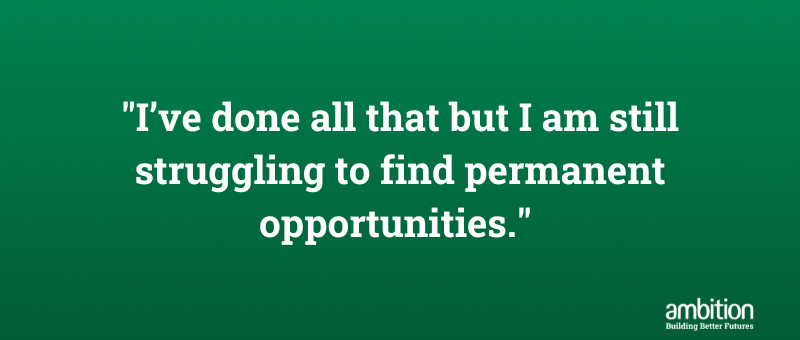Please beware of recruitment scams that are currently targeting jobseekers. Click here for further advice.

How to achieve career growth in the competitive world of investment operations
Are you a junior candidate in the finance industry wondering how to stand out and achieve career growth in a sea of competition? The financial sector is highly competitive, but with the right approach and some strategic steps, you can make your mark and advance your career. In this blog, we will guide you through some actionable tips to help you stand out from your competitors and achieve your career goals.
Let’s start with career growth
1. Invest in your education
Whether you're starting your career or looking to pivot into financial services from another field, education is a key factor in your success. Consider these options:
Pursuing an undergraduate degree. An undergraduate degree in economics, accounting, or financial analysis can provide a strong foundation for a finance career. This formal education will equip you with essential knowledge and skills that employers value.
Explore an MBA. If you already have a degree that isn't finance-related, an MBA can level the playing field. It offers a comprehensive understanding of financial concepts and management, making you a more desirable candidate and reducing the gap between you and your competition.
Chartered Financial Analyst (CFA). Enrolling in the (CFA) program is a necessity if you’re applying to front office roles as it will demonstrate your expertise in investment management and analysis. Only a small percentage of candidates complete all 3 levels. By doing so, you will move yourself up any shortlist.
2. Connect with a mentor
Mentorship is a valuable resource for career growth. Find an experienced professional in the financial services industry who can guide you, share insights, and help you navigate your career path effectively.
3. Pursue internships
Gain practical experience by applying for internships in finance-related roles. These opportunities will provide you with hands-on experience and allow you to build a network within the industry.
4. Polish up your resume
A well-crafted resume is essential for standing out. Tailor your resume to highlight relevant skills, experiences, and certifications that make you an attractive candidate.
5. Stay proactive
Take an active approach to your career. Don't wait for opportunities to come to you. Seek them out. Reach out to HR departments, attend networking events, and leverage online platforms like LinkedIn to expand your professional network.
By following these steps and continuously improving your skills and knowledge, you can differentiate yourself and position your career for growth in the competitive finance industry.

"I’ve done all that but I am still struggling to find permanent opportunities."
Then why not consider taking a contract role? Contract work can offer a range of advantages that can enhance your career. Here are some of the main ones:
You’ll gain diverse experience. Contract positions often offer more flexibility in terms of the experience they require. You may have the opportunity to work in various roles and industries, broadening your knowledge and skills beyond what you might gain in a permanent position.
You can test the water. Contract work allows you to "test drive" a company before committing to a long-term role. This flexibility enables you to explore different workplaces and determine what aligns with your long-term career goals.
It will help you build a strong network. Working on multiple assignments for different companies can help you build a larger professional network. These connections may lead to new opportunities and collaborations in the future.
It has a good chance of going permanent. If you excel in your contract role, many organisations may offer the opportunity to convert your contract into a permanent position. Your strong performance can put you on the path to a more secure, long-term career.
Considering contract work even if you’re in a permanent job can be a strategic move to expand your skills, network, and future career opportunities. It's a valuable option to boost your career growth and enhance your professional journey.
What about future-proofing your career?
The financial services industry is evolving with the increasing integration of Artificial Intelligence (AI). Adapting to these changes will help future-proof your career, keeping your skills relevant in the changing workplace environment. Here's what you can do to remain a key part of any organisation.
1. Embrace soft skills
AI is automating many routine tasks, emphasising the importance of soft skills that are not easily replicated by machines. Effective communication with both internal and external stakeholders, including clients, is essential. Being able to convey complex financial information in a clear, engaging, and trustworthy manner is a valuable skill.
2. Process improvement
Invest time in developing skills and relationships that can help streamline business processes, improve efficiency, and increase profitability. The ability to combine a technical understanding of financial services with a track record of driving projects and processes is highly sought after.
3. Explore analytical roles
If traditional operations roles are becoming automated, consider transitioning into analytical positions. Many organisations are creating roles focused on data analysis to identify growth opportunities and enhance profitability. Acquiring data analysis skills can open new career paths in the finance industry.
Thank you for reading, and please reach out to us here if you need or want any further advice on this subject.







